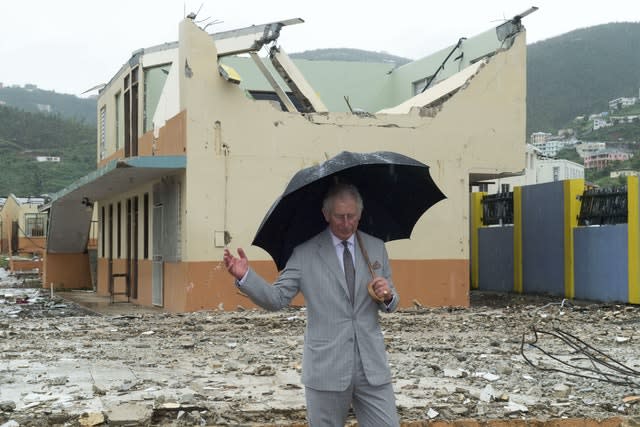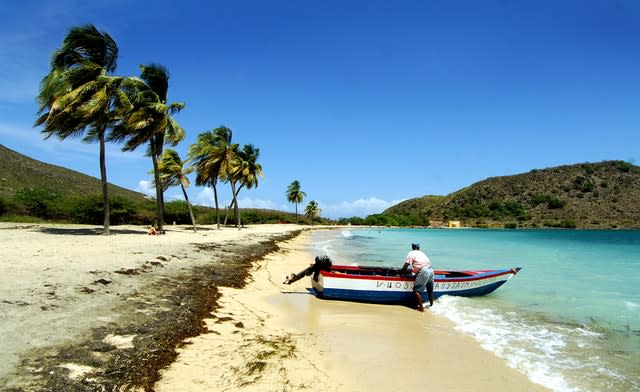Island nations facing ‘existential threat’, warns Commonwealth chief
The Commonwealth Secretary-General has called for an overhaul of access to financial support to help island nations facing the perfect storm of Covid-19, climate change and a fall in tourism.
Baroness Scotland said small states in regions like the Caribbean and the Pacific were facing an “existential threat” and stressed that action was needed as “this is not a crisis we can ignore or wish away”.
The secretary-general’s plea was made during a virtual meeting held alongside a United Nations General Assembly and comes as coronavirus infections begin to rise around the globe, the hurricane season continues to threaten islands and tourism remains depressed.

Speaking at the meeting last week, the secretary-general said: “Given the wide-ranging impact of Covid-19 we need a new set of criteria for the financial support we offer to vulnerable small states and we must urgently reassess the methods we use to classify countries for official support.
“Many small states are facing an existential threat with the impact of the pandemic coming with huge economic ramifications alongside the ongoing and devastating effects of climate change.
“If we are to be able to meet the very real and urgent needs of these small states we must redefine economic vulnerability and, as regional and multilateral institutions, we must agree on the appropriate definitions and measurement of economic vulnerability.”
The virtual event, co-hosted by the Commonwealth Secretariat – the Commonwealth’s civil service – and the Alliance of Small Island States, also saw small countries call for an urgent reassessment of the criteria for debt relief, especially given the vulnerabilities of many states exposed by the pandemic.
Their comments were directed to the G20 group of leading economies and private financial institutions which ultimately own national debt.

Critics have said that using the gross domestic product (GDP) per person criteria to determine eligibility for financial support is not an effective “barometer” of a small state, as it can give a false impression of a healthy or wealthy economy.
It is argued that international financial institutions should re-examine the assessment criteria and formally incorporate a vulnerability index – which shows a country’s exposure to economic, environmental and social shocks.
Hurricane season in the Caribbean still has another two months to run and there are fears that islands could be battling the elements alongside the coronavirus which has decimated visitor numbers across the globe.
Tourism arrivals worldwide were down 93% in June compared to the same month last year, according to the UN World Tourism Organisation.
With the data revealing the Americas, including the West Indies, recording a drop of 55%, and Asia and the Pacific region a 72% fall.
The effect of climate change on extreme weather patterns like hurricanes is still being assessed but there is a suggestion it may increase the intensity and frequency of storms.
Baroness Scotland added: “This is not a crisis we can ignore or wish away and a failure to fully tackle these issues will put economies, livelihoods and communities at real risk. We must act and act now during these times of crisis.”

 Yahoo News
Yahoo News 